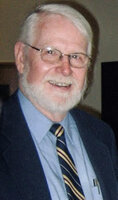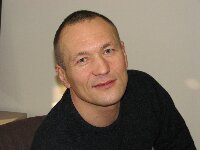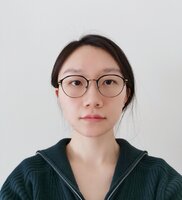
Quantitative Psychology
Quantitative Psychology at the University of Illinois, Urbana-Champaign, has a long-standing tradition of academic excellence. A list of faculty who taught at Illinois during the past decades reads like a who-is-who of 20th century Psychometrics and Quantitative Psychology. Luminaries like William Batchelder, Raymond B. Cattell, Lee J. Cronbach, Charles Osgood, Lloyd Humphries, Henry Kaiser, Robert Linn, Roderick McDonald, Jum C. Nunnally, Ledyard R Tucker, and Herbert Woodrow taught at Illinois. 16 former presidents of the Psychometric Society have close ties to Illinois--be that as faculty or former students; among them is the current president of the Psychometric Society, Daniel Bolt, who graduated from the Quantitative Psychology Program in 1999.
The PhD program in Quantitative Psychology at the University of Illinois, Urbana-Champaign, offers an integrated curriculum that blends instruction and research. Our goal is to train students to become the next generation of outstanding quantitative methodologists and mathematical and computational modelers. Our alumni work in academic institutions, testing organizations, government, research laboratories, and industry.
Our curriculum covers a broad spectrum of modern behavioral analytics: categorical data analysis, clustering, cognitive diagnosis, hierarchical linear models, latent trait theory, mathematical and computational models of judgment and choice, decision making, and information processing, multivariate analysis, psychometrics, psychological scaling, and structural equation modeling. Students are encouraged to broaden the scope of their education through coursework in neighboring disciplines such as applied statistics, computer science, operations research, educational evaluation and measurement.
Current faculty teaching in the Quantitative Psychology Program (detailed information on faculty can be found in following the link to their individual websites):
At Illinois, we have always taken an active stance in strongly supporting women and minority students and faculty. The quantitative faculty at Illinois are committed to cultural, gender, and race equality and diversity, as well as to treating all people equally and with respect. We strongly encourage students of under-represented backgrounds to apply to our program.
The Quantitative Psychology PhD program trains the future developers and inventors of mathematical and quantitative psychology, not just savvy users of existing methods. We strongly favor applicants with prior training in STEM fields, such as Computer Science, Engineering, Mathematics, Statistics, and related disciplines. The ideal applicant is an intellectually curious double major in mathematics or statistics and psychology who also has excellent verbal skills.
The best preparation to apply to the Quantitative Psychology PhD program is to take several mathematics or statistics classes (in a Mathematics or Statistics department) and to pass them with excellent grades. International students must pay careful attention to Application Requirements, especially in Language Proficiency.
In most years, a large portion of our applicant pool is ineligible for admission because of insufficient evidence for language proficiency. If you are an international applicant, it is extremely important that you visit this link before you apply.
See English Proficiency Requirements


Faculty working in Quantitative Psychology











Related News
- Congratulations to Susu Zhang, Assistant Professor of Psychology and Statistics, who has been awarded an AERA-NSF grant! Researchers from the University of Illinois at Urbana-Champaign and the...
- Congratulations to Auburn Jimenez on being one of five students to receive the Dissertation and Research Grant from the American Educational Research Association (AERA). Auburn is currently pursuing...
- Dr. Zhang has been awarded the 2022 Alicia Cascallar Award for an Outstanding Paper by an Early Career Scholar.





